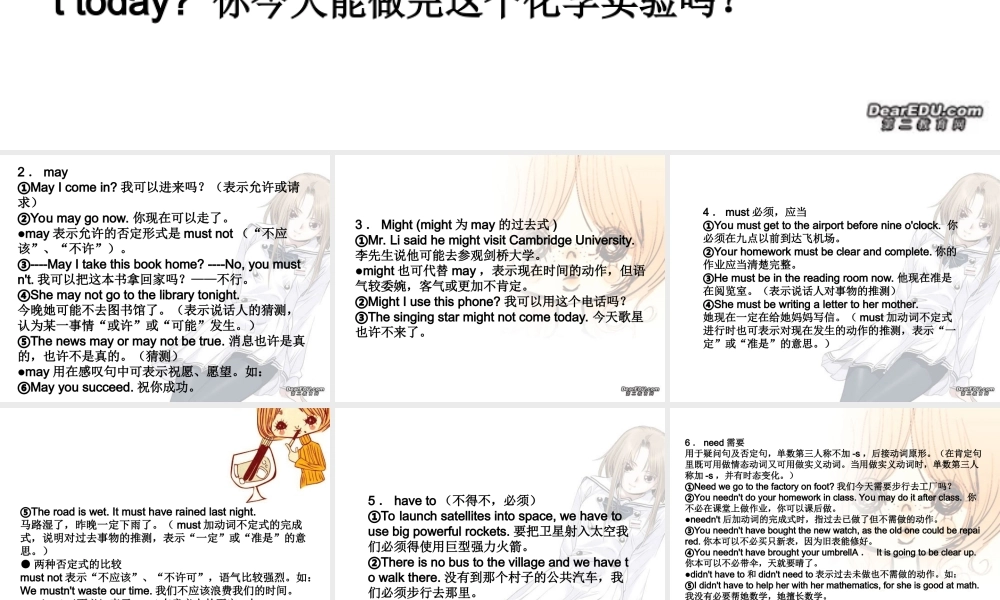1 . can, could (能)表示一般现在时和一般过去时两种时态,有时也能表示将来时。所有其他时态(包括将来时)须用 to be able 加动词不定式来表示。①What can I do for you? 我能为你做什么吗?②It surely can't be eleven o'clock already. 不可能已经十一点钟了。③We were sure that he could pass the test. 我们肯定他能通过测试。④Will you be able to finish the chemical experiment today? 你今天能做完这个化学实验吗?2 . may ①May I come in? 我可以进来吗?(表示允许或请求)②You may go now. 你现在可以走了。●may 表示允许的否定形式是 must not (“不应该”、“不许”)。③----May I take this book home? ----No, you mustn't. 我可以把这本书拿回家吗?——不行。④She may not go to the library tonight. 今晚她可能不去图书馆了。(表示说话人的猜测,认为某一事情“或许”或“可能”发生。)⑤The news may or may not be true. 消息也许是真的,也许不是真的。(猜测)●may 用在感叹句中可表示祝愿、愿望。如:⑥May you succeed. 祝你成功。3 . Might (might 为 may 的过去式 )①Mr. Li said he might visit Cambridge University.李先生说他可能去参观剑桥大学。●might 也可代替 may ,表示现在时间的动作,但语气较委婉,客气或更加不肯定。②Might I use this phone? 我可以用这个电话吗?③The singing star might not come today. 今天歌星也许不来了。4 . must 必须,应当①You must get to the airport before nine o'clock. 你必须在九点以前到达飞机场。②Your homework must be clear and complete. 你的作业应当清楚完整。③He must be in the reading room now. 他现在准是在阅览室。(表示说话人对事物的推测)④She must be writing a letter to her mother. 她现在一定在给她妈妈写信。( must 加动词不定式进行时也可表示对现在发生的动作的推测,表示“一定”或“准是”的意思。)⑤The road is wet. It must have rained last night. 马路湿了,昨晚一定下雨了。( must 加动词不定式的完成式,说明对过去事物的推测,表示“一定”或“准是”的意思。)● 两种否定式的比较must not 表示“不应该”、“不许...


